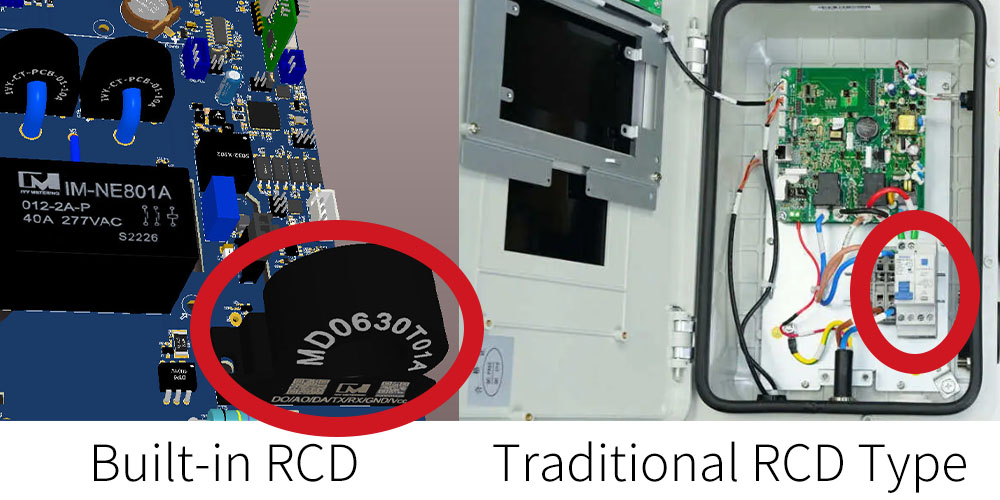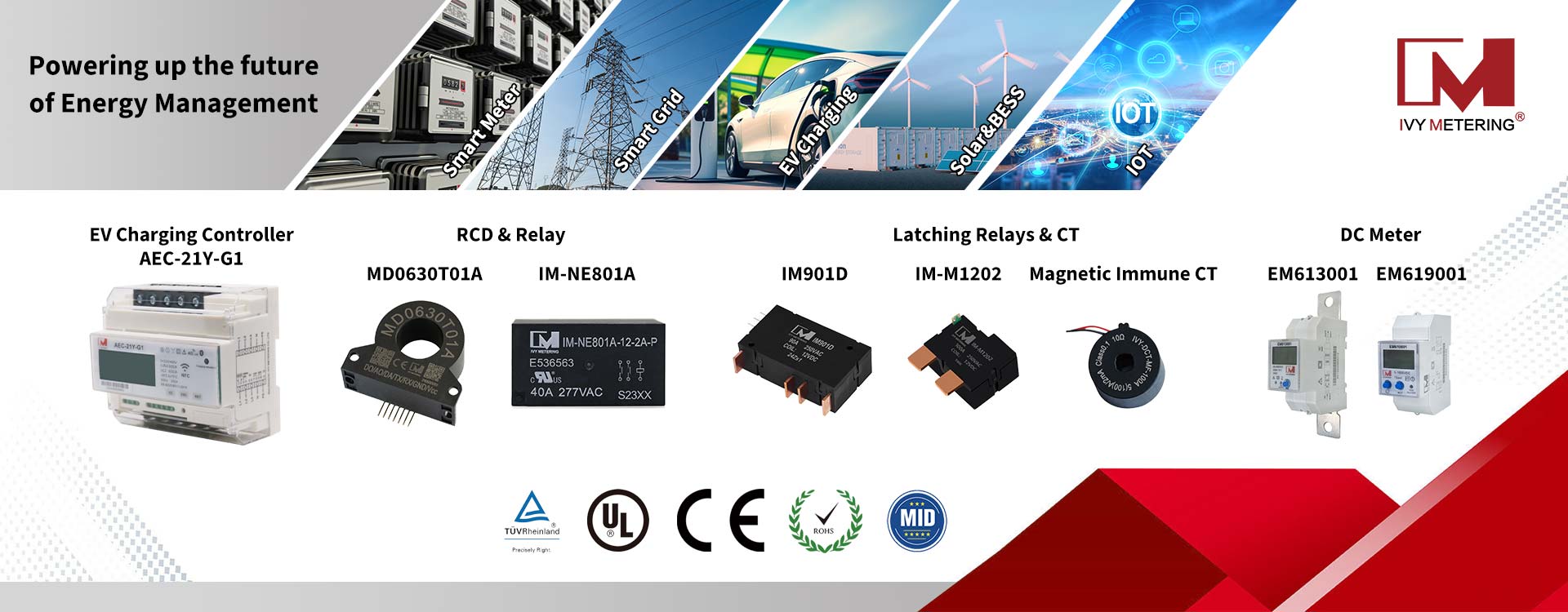Why Built-in RCD within EV Chargers is Popular?
As electric vehicles gain popularity, ensuring the safety of EV charging infrastructure is crucial. Residual Current Devices (RCDs) are essential for protecting against electric shocks and fire hazards at charging stations. Built-in Type B RCDs are specialized solutions that offer enhanced safety and reliability for EV charging stations.
Built-in RCD (also known as integrated RCD): An EV charger that complies with the IEC 62955 RCD requirements. Key functions are implemented through seamless interaction between residual current sensors, EV charging controller MCU, relays, and auxiliary components. This approach enables streamlined design with a focus on efficient electronic integration.
Traditional RCD: A standalone protection or monitoring device, typically mounted on a DIN rail, also compliant with IEC 62955. This design is typically more complex, combining electromechanical components to operate.

Traditional DIN rail mounted RCDs are rarely integrated into charging stations due to size, cost, and the complexity of the reset mechanism after leakage protection. In fact, most home charging stations mainly use built-in RCD solutions.
At IVY Metering, we recognize that EV charging infrastructure safety is of paramount importance. We advocate the use of Type B RCDs in charging stations for the following reasons:
1.Comprehensive protection: Type B RCDs offer superior detection capabilities for most types of residual currents, ensuring strong protection against electric shock and fire hazards.
2.Regulatory compliance: Many regions have stringent safety standards for EV charging facilities, requiring the use of advanced RCDs capable of detecting smooth DC residual currents. Using these devices ensures compliance with local regulations.
3.Enhanced reliability: By adopting Type B RCDs, charging station manufacturers and operators can improve the reliability and safety of their facilities, reducing downtime and maintenance costs.
4.Future-proofing: As EV technology continues to advance, the need for higher safety standards will only increase. Investing in advanced RCD technology now ensures that charging infrastructure remains relevant and safe for years to come.
Benefits of Type B RCDs:
Detects AC, pulsating DC, and smooth DC residual currents up to 1k Hz, making them suitable for EV chargers.












